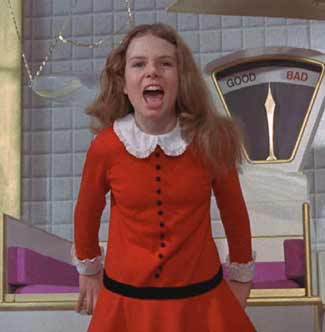I recommend Xanax. Or, you know, marijuana. I’ve heard that’s good for anxiety.
Republicans have long idealized Texas as a deep-red frontier state, home to rural conservatives who love President Donald Trump. But political turbulence in the sprawling suburbs and fast-growing cities are turning the Lone Star State into a possible 2020 battleground.
“The president’s reelection campaign needs to take Texas seriously,” Sen. Ted Cruz, R-Texas, said in an interview. He added that while he remains optimistic about the GOP’s chances, it is “by no means a given” that Trump will carry Texas – and win its 38 electoral votes – next year or that Sen. John Cornyn, R-Texas, will be reelected.
For a state that once elevated the Bush family and was forged into a Republican stronghold by Karl Rove, it is an increasingly uncertain time. Changing demographics and a wave of liberal activism have given new hope to Democrats, who have not won a statewide elected office since 1994 or Texas’ presidential vote since Jimmy Carter in 1976.
Recent Republican congressional retirements have stoked party concerns, particularly the surprising Thursday announcement by a rising star, Rep. Will Hurd, that he would not seek reelection in his highly competitive district, which stretches east from El Paso along the Mexican border.
[…]
According to the Texas Tribune, nearly 9 million Texans showed up to the polls in 2016, when Trump won the state by nine percentage points over Democrat Hillary Clinton – a notably smaller margin than in 2012, when Mitt Romney defeated President Barack Obama by nearly 16 percentage points.
And in 2018, turnout was nearly at presidential-cycle levels at 8 million, compared with 4.6 million in 2014, the previous midterm election year.
Cruz said those figures should alarm Republicans nationally about potential Democratic turnout in 2020 – and make donors and party leaders recommit to investing in statewide and congressional races in Texas rather than assuming that Trump’s political brand and a few rallies will be enough.
The suburbs are where Texas Republicans are most vulnerable, Cruz said, noting that O’Rourke made inroads in 2018 in the highly populated suburbs outside Dallas and Austin, and in other urban areas.
U.S. Census data shows Texas is home to the nation’s fastest-growing cities, and an analysis last month by two University of Houston professors predicted that “metropolitan growth in Texas will certainly continue, along with its ever-growing share of the vote – 68 percent of the vote in 2016.”
“Historically, the cities have been bright blue and surrounded by bright red doughnuts of Republican suburban voters,” Cruz said. “What happened in 2018 is that those bright red doughnuts went purple – not blue, but purple. We’ve got to do a more effective job of carrying the message to the suburbs.”
This is a national story, reprinted in the Chron, so it doesn’t have much we haven’t seen before. I’d say that the historic strength of Republicans here has been in the suburbs and exurbs – the fast-growing parts of the state – which is similar to GOP strength elsewhere. It’s also where they suffered the greatest erosion of that strength in 2018, and if that continues in 2020 they really do have to worry about losing statewide. Honestly, loath as I am to say it, Ted Cruz has a pretty good handle on the dynamic. Not that he’ll be able to do anything about it, being Ted Cruz and all, but he does understand the predicament he and his fellow travelers are in.

